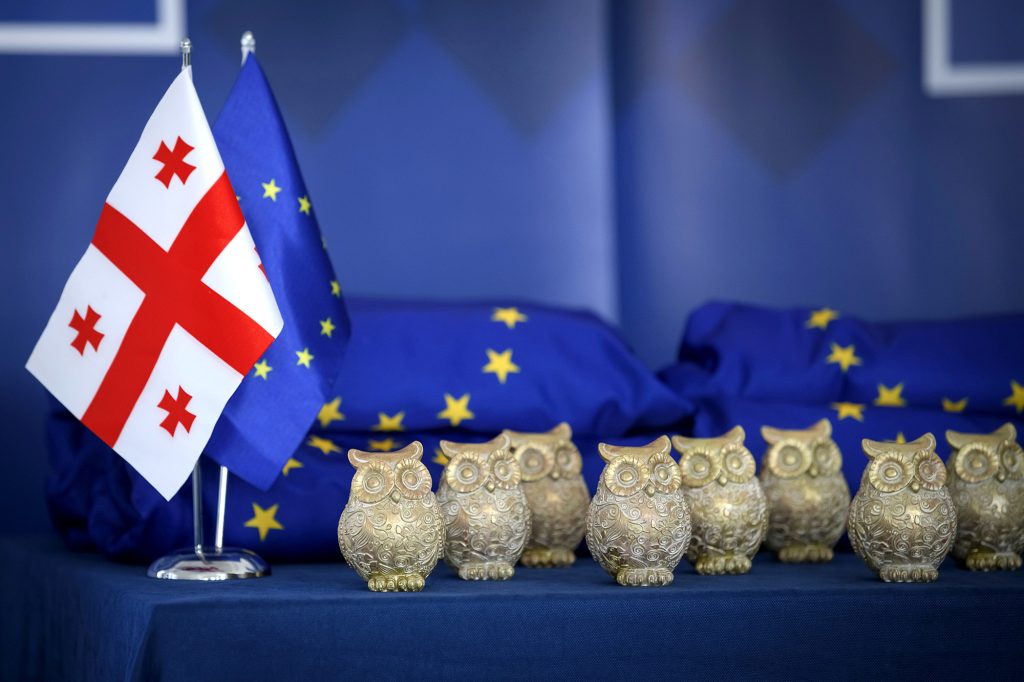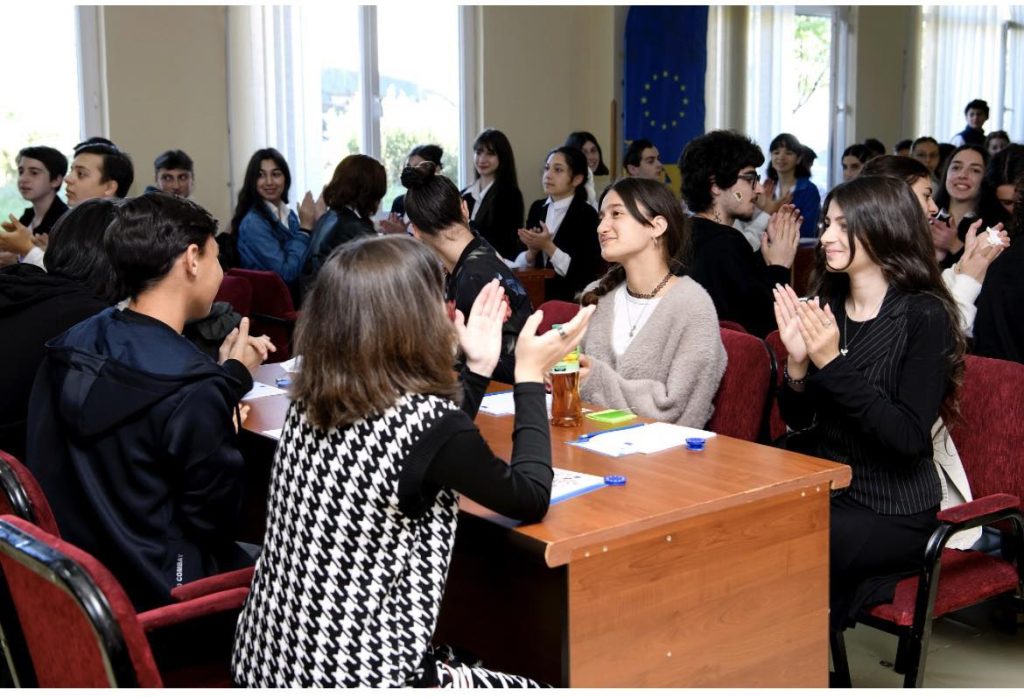
From Tbilisi to Guria: ‘What? Where? When?’ Quiz Connects Georgia’s Youth to the EU
The EU edition of the popular quiz game ‘What? Where? When?’ has united more than three thousand school students across Georgia. Initiated and organised by the European Union in Georgia, the quiz marathon was launched in the Adjara region this summer and was subsequently expanded into six other regions of Georgia. By spring 2024 the quiz will be rolled out across all of the country, offering a truly unique and interesting experience for young people living in the regions and Tbilisi.
‘European edition of What? Where? When?’ is an adapted version of the popular game now focusing on questions about Europe, but tailored in a fun and interactive manner to enable young people to learn more about the EU. And it has worked: interest and enthusiasm have been high, with 600 teams from six regions of Georgia already having participated.
According to the EU Ambassador to Georgia Pawel Herczynski, this project is especially important for Georgia as the country is taking its path towards the EU membership. “Georgia’s young people not only unite during the game, but also deepen their knowledge about the EU and its operations by answering questions that relate to the history, structure and core values of Europe. Georgia is on its way towards EU membership, and the Georgian youth are the future citizens of the European Union… They are the main architects of the future,” he says.
The European edition of “What? Where? When?” game series are hosted by Giorgi Mosidze, President of the Georgian Club, as well as other club members. According to Giorgi, the main goal of the series is to encourage interest in Europe among Georgian youth: “This game focuses on two aspects: the first being values, as we talk about European values that we want to pass on and instil in the new generation. The second aspect is factual knowledge and logical thinking about issues related to Europe. This game gives a lot of insights, and I think it will greatly deepen the knowledge and attitudes of our young people.”
In the era of misinformation, it is very important to accumulate factual knowledge, and young people understand it very well, according to one participant, a student from Gori. Mariam Batonisashvili, a student of Public School No. 11, says: “Such projects are very important for our generation as they help develop critical thinking. I would definitely invite my peers to participate because we are the generation that will live in the EU and the generation that will make changes in the country’s development.”
Shalva Bichelashvili, a student of Public School No. 9 in Telavi, adds: “It is very important to organize such events to raise awareness among the population. I don’t think many people know a great deal about the EU, so it is important to involve them in such projects.”
School students from Grades 8-12 are eligible to participate in EU-initiated quiz series. Throughout the year, the intellectual game will be held in all 63 municipalities of Georgia and in 11 districts of Tbilisi. Of particular note is the fact that the quiz will also take place in a juvenile colony.
This year, ‘What? Where? When?’ covered Adjara, Kakheti, Shida Kartli and Mtskheta-Mtianeti, as well as Imereti. The game series was concluded in Guria, and next year the marathon is set to continue across all other regions of Georgia, including Kvemo Kartli, Samtskhe-Javakheti, Samegrelo-Zemo-Svaneti, Racha-Lechkhumi and Kvemo-Svaneti.
As Georgia’s youth unite and actively participate in this educational quiz, they are not only forming connections amongst themselves but also reinforcing their links with the EU. With knowledge as their compass, these young minds are poised to make a positive impact.

